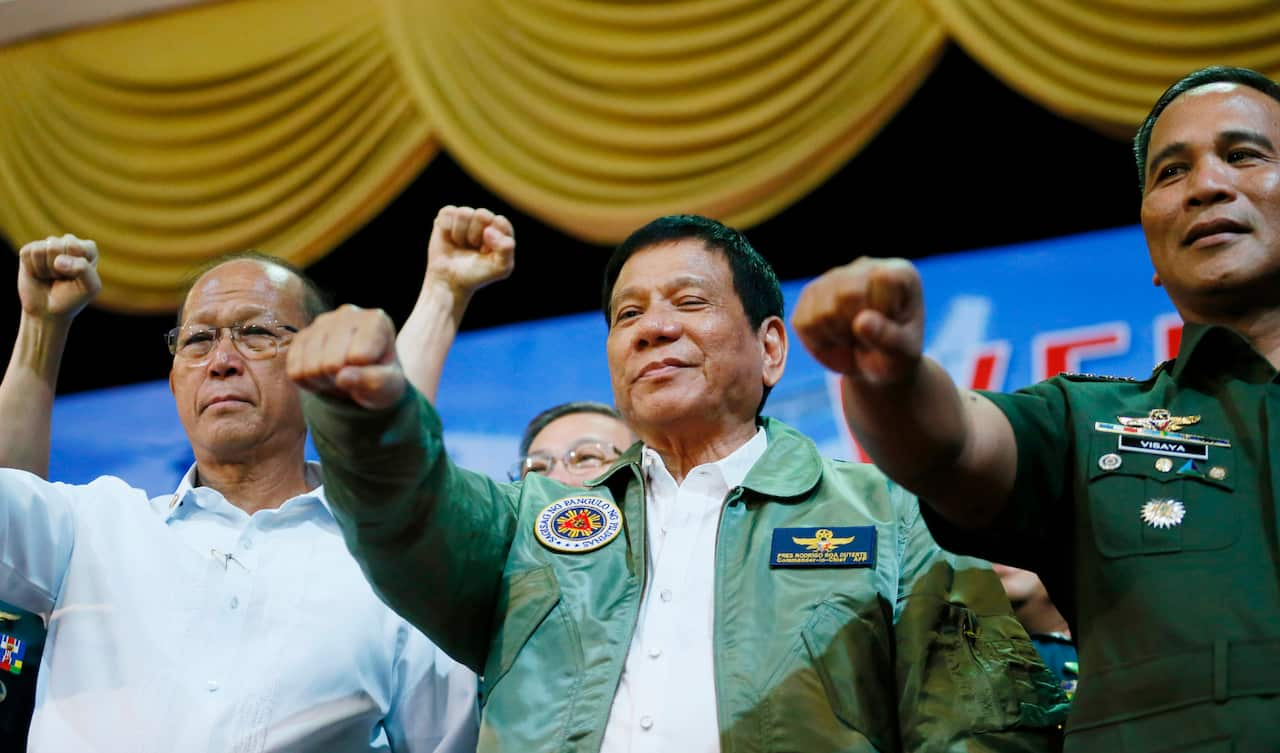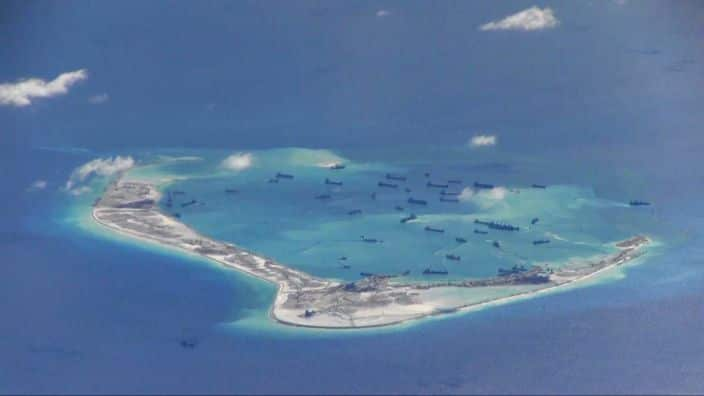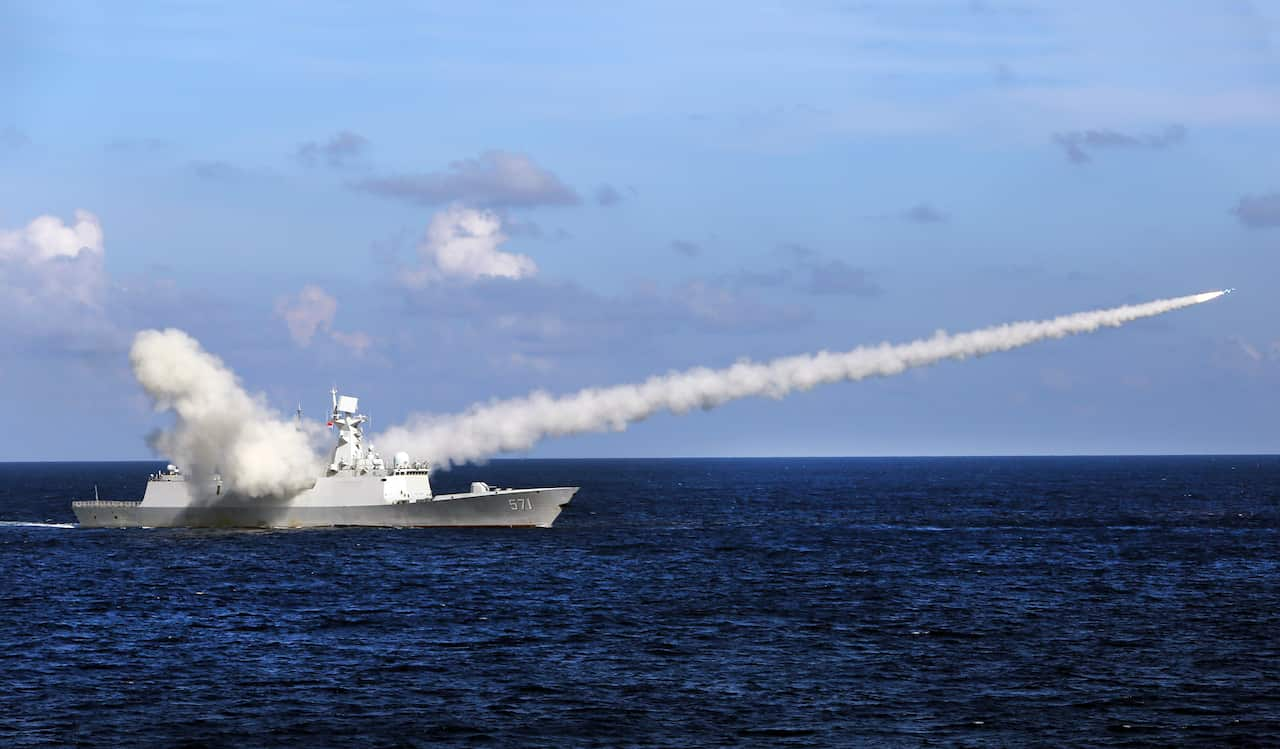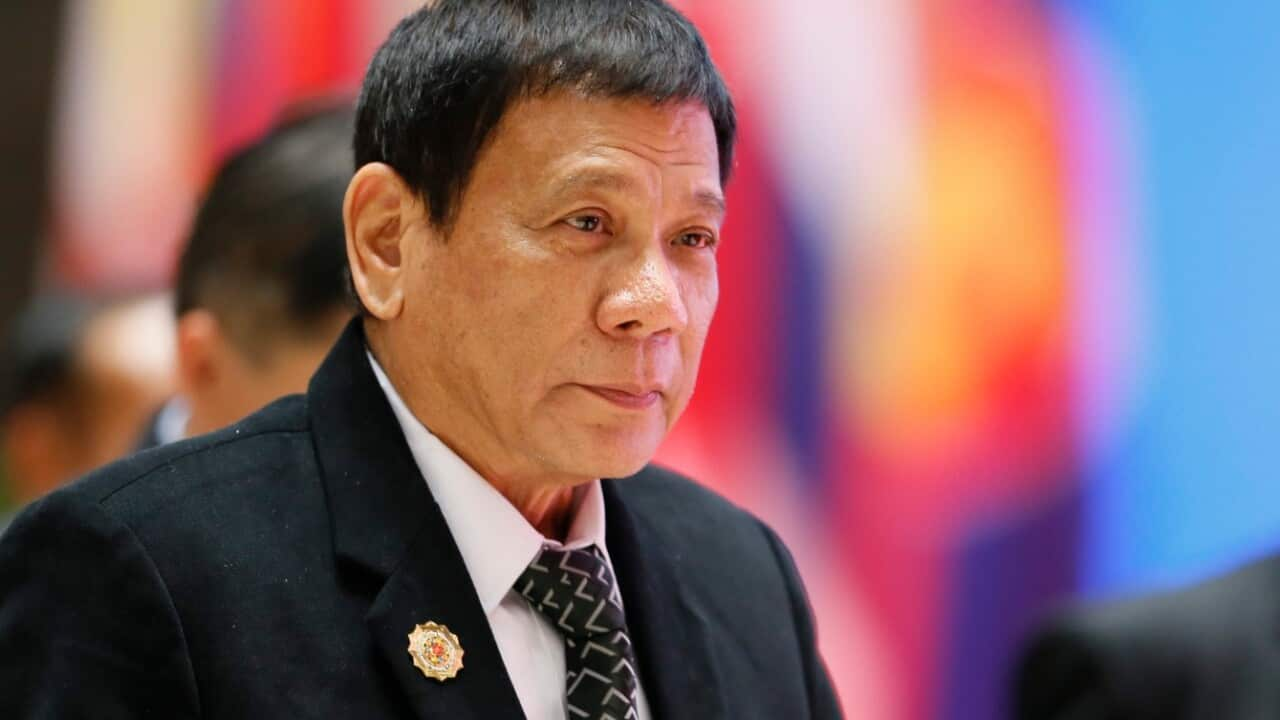How significant is Duterte’s pronouncement that he will stop joint patrols and consider arms deals with Russia and China?
Cook: Symbolically very important and potentially important substantively if these presidential comments are turned into sustained policy change.
On joint patrols with the US in the South China Sea – It is clear that President Duterte supports a very different approach to the maritime rights and territorial disputes with China in the West Philippine Sea.
Duterte also has a more sceptical view of the present value to the Philippines of the alliance with the US and the broader historical relationship, colonial and post-colonial, and that this is affecting his views of Philippine foreign policy.
We are very early into Duterte's single six-year term and so the likely policy directions for the administration and how they differ from those of the Aquino administration are being determined now.
In substantive terms, the proclaimed joint patrols with the US that are to be ended were not significant as Philippine naval capabilities are very limited and predominantly coastal in nature.
As for arms sales from Russia and China, this again is unlikely particularly in large quantities and for major weapons systems.
Earlier the Duterte administration had criticised the quality of Chinese weapons it may consider purchasing and noted the quality of US ones.
There is likely more bark than bite here.

Davis: If he actually follows through on his announcement with actual policy of changing the Philippines dependence from the US to Russia and China, this is highly significant.
It would mean that he would make the Philippines dependent on China – the state that threatens Filipino interests to the greatest degree in the South China Sea.
This could imply that he is choosing to back away from Manila’s claims in the South China Sea – he’s ‘ceding the board’ to the other side, perhaps because:
(a) he feels that there is nothing really the Philippines can do to protect their interests;
(b) the US ultimately won’t go to war with China over Scarborough Shoal, Second Thomas Shoal or other reefs and rocks; and
(c) he can gain more by bargaining with Beijing and Moscow than by standing up to them.
Having said that – and my above statements imply a degree of Realist thinking that may simply not be occurring in Duterte’s mind – he could also be seeking to play Washington off against Beijing and Moscow to get a better deal.
He thinks he is in a strong position, and all sides will come to the table to give him what he wants (very Trump-like), but I don’t see the US being suckered into such a play. Instead Beijing and Moscow will happily accommodate him, and exploit Duterte’s vanity to their benefit, and Manila’s disadvantage.
Obviously the US won’t want to see greater influence by Beijing or Moscow in Manila, but it may be that Duterte’s bull in a china shop mindset, combined with domestic US political timelines associated with the election, make their ability to act constrained.

Why is Duterte pulling back, when he has the support of the Permanent Court of Arbitration decision and the United States?
Davis: As noted above, he may be trying to play one side off against the other to gain the greatest leverage; or, he may have decided that there is nothing he can ultimately to prevent China from taking further Philippines territory and it is better to be closer to Beijing and Moscow than Washington – he’ll gain economic benefits perhaps if he kowtows; or it may simply be a rash off-the-cuff statement with little forethought, much like his abuse of Obama the other week.
He may have decided that groups like ASG in Mindanao are the more immediate threat, but that would not explain a move to rely more heavily on the Philippines key adversary – China.
The US is well equipped to assist the Philippines in combating such threats, and actually has forces in country to do so. Duterte has asked that those forces be removed.
If he is on the one hand asking for the removal of US SF forces, who are actually fighting ASG, whilst in the next breath calling for greater assistance from Beijing and Moscow to fight terrorism and insurgency, that suggests a deeper strategic shift than simply buying weapons.
Cook: As a candidate and now as President, Duterte has given much greater priority to the two insurgencies and the illegal crime as national security threats than to China's unlawful actions in the Philippine exclusive economic zone.
Philippine weapons purchases and force structure are being reoriented again towards these internal threats and away from the maritime domain.
Duterte also believes that bilateral talks with China over the disputes in the Philippine exclusive economic zone can be productive, a view the Aquino administration rejected after China took control of Scarborough Shoal in 2012.
How do you see things playing out? Will the Philippines try to walk this back or will this cement as a real shift?
Cook: Duterte and his personalised approach to presidential rule does pose a new and potentially serious challenge to the US-Philippine alliance and one the US has limited abilities to address.
This is predominantly a question of identity politics not grand strategy.
If China does not aggravate the situation in the Philippine exclusive economic zone (as it did in 2012 leading to the Aquino shift of policy), Philippine identity politics may continue to trump Philippine strategic interests.
Davis: The US will clearly move swiftly to ‘clarify’ Duterte’s remarks and ascertain whether they are off-the-cuff rambling or a serious policy shift.
If it is the latter then one of two things might happen.
The US could distance itself from the Duterte regime (much as they did with Thailand after the coup) but risk China and Russia filling the vacuum (much as China did in Thailand when the US reduced ties) – that may imply the US might mitigate the risk by seeking to boost ties with other ASEAN states – Vietnam, Indonesia and Singapore – or the US could re-engage with Duterte to try to talk sense to him.
The risk there is that then Duterte could try to play Washington off against Beijing and Moscow, and given the impact of the US election process and the fact that long-term US policy is uncertain until after November, there is a window of opportunity for Beijing in particular to make gains at US expense.

As noted above – if Duterte is really serious about this, the Chinese will move swiftly to tie him into the outcome that best suits Beijing, and that could mean pressuring Duterte to bring the Philippines closer to Beijing and accept de-facto Chinese control over Philippines claimed reefs and territories – in effect reversing in spirit the PCA outcome.
This would mean Duterte loses political influence and credibility in the eyes of ASEAN, the US, Australia and Japan. The Philippines loses legal ‘high ground’ against Beijing, and also is less well placed to respond to future Chinese moves, for example, against Scarborough or Second Thomas Shoal. In effect – the Philippines loses.
Duterte’s only ‘gain’ may be some economic largesse from China, and his own personal ego is puffed up because he can claim to have ‘stood up to the Americans’ (whatever that really means) – so for the sake of personal ego and vanity he in effect throws the Philippines defence and security interests away.
The US would have to respond to whatever moves China or Russia makes in regards to arms sales to Manila, and whether China seeks to accompany such sales with other types of engagement or presence.
The US would seek to strengthen its ties with other ASEAN states to compensate the vacuum with Manila.
It might forward-base more forces in the region but the loss of a relationship with Manila would constrain this option. Specifically, a big issue is what would become of the Enhanced Defence Cooperation Agreement (EDCA) between Washington and Manila – would that survive?
If it did not, then the US would lose access to key Philippines base and port facilities and that would weaken its ability to sustain forward presence near the South China Sea.
I have no doubt that the Chinese will be pressing Duterte to move away from EDCA. Duterte’s call for the removal of US Special Forces in Mindanao seems to reinforce this risk.
How important is the Philippines as an ally of the US and Australia in the South China Sea dispute? Would the President’s comments be causing consternation for US and Australian leaders?
Davis: I’d say it certainly would be – as it opens up the prospect for China in particular gaining influence and at least, indirectly, presence, in the Philippines in a manner that is strategically unwelcome for US interests, and by extension, Australia’s.
I think it also reinforces concerns that Duterte is completely unpredictable and potentially has no rational understanding of the strategic environment in which he is ruling. He is ASEAN’s Trump.
The Philippines is very important [to the US], given the long relationship between Manila and Washington that has strong historical significance, and given its forward location that makes it an important geostrategic player in the SCS dispute.
The Philippines Defence Forces (PDF) lack real punch because they have focused extensively on internal security threats, particularly in Mindanao from left wing and now Islamist guerrilla and terrorist forces – so their primary strength is with ground forces for counter-insurgency.
The previous government of Benigno Aquino had begun the process of shifting PDF strategy and force structure to respond to the growing challenge from China in the South China Sea, but Duterte’s move seems to be halting that process.
Comments have been edited for brevity.
Through award winning storytelling, The Feed continues to break new ground with its compelling mix of current affairs, comedy, profiles and investigations. See Different. Know Better. Laugh Harder. Read more about The Feed
Have a story or comment? Contact Us


